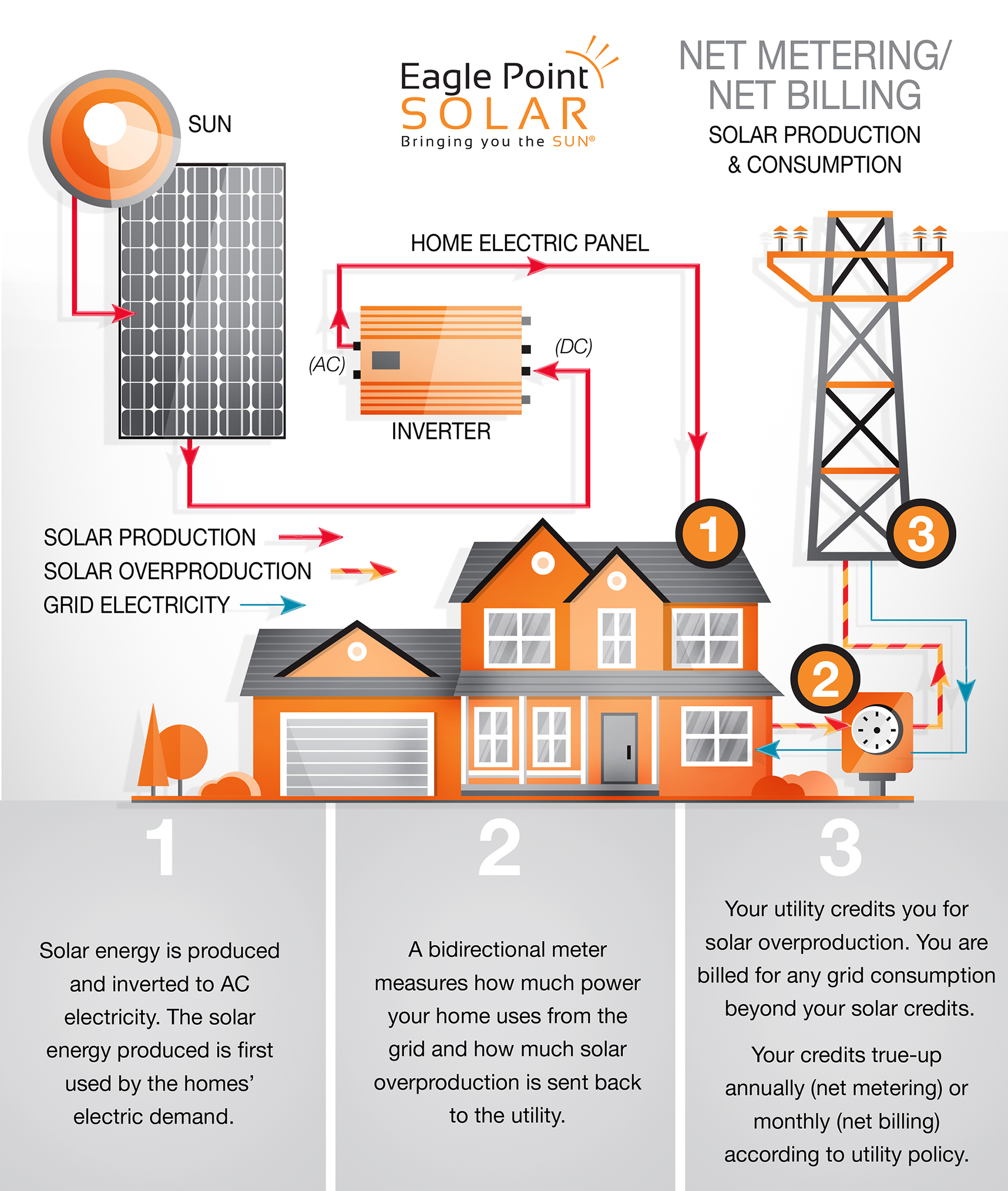Balancing Energy: Net Metering for Solar Homes
3 min read

Balancing Energy: Net Metering for Solar Homes
Harnessing solar power goes beyond powering your home; it involves a dynamic interplay with the grid through net metering. Explore how net metering revolutionizes the way solar panel homes interact with the energy ecosystem.
Understanding Net Metering: A Two-Way Street
Net metering is a billing arrangement that allows solar panel homes to send excess energy they generate back to the grid. In essence, it turns the electricity meter into a two-way street, measuring both energy consumption and production. This system enables homeowners to receive credits for the surplus energy they contribute to the grid.
How Net Metering Works in Solar Panel Homes
In a net metering scenario, when solar panels produce more electricity than the home consumes, the excess is fed back into the grid. The homeowner receives credits for this surplus energy, effectively spinning the meter backward. During periods of low solar production, such as nighttime, the home draws electricity from the grid. The net result is a balance between energy production and consumption.
Financial Benefits of Net Metering
Net metering presents substantial financial benefits for solar panel homeowners. By receiving credits for surplus energy, homeowners can offset the costs of grid-supplied electricity during periods of low solar production. This process significantly reduces electricity bills and, in some cases, may result in a surplus of credits that can be carried forward to subsequent billing periods.
Promoting Energy Independence and Self-Sufficiency
One of the key advantages of net metering is its role in promoting energy independence. Solar panel homes become less reliant on the grid for their energy needs, particularly during daylight hours. This increased self-sufficiency not only contributes to a more resilient energy supply but also aligns with the broader goal of reducing dependence on traditional energy sources.
Optimizing Solar System Size for Net Metering
To maximize the benefits of net metering, homeowners often optimize the size of their solar panel systems. Sizing the system appropriately ensures that it generates enough surplus energy to offset periods of higher energy consumption. Achieving this balance requires careful consideration of factors such as household energy needs, local sunlight conditions, and available roof space.
Government Policies and Support for Net Metering
The success of net metering is often influenced by government policies and support. Many jurisdictions encourage net metering through regulations that ensure fair compensation for surplus energy fed into the grid. Understanding and leveraging these policies can enhance the financial viability of solar panel installations and net metering arrangements.
Environmental Impact and Net Metering
Net metering not only benefits homeowners financially but also contributes to environmental sustainability. By promoting the use of clean and renewable energy sources, net metering reduces the overall carbon footprint of participating homes. Solar panel homes actively contribute to a greener grid, fostering a more sustainable approach to energy consumption.
Grid Resilience and Distributed Energy
The integration of solar panel homes with net metering enhances grid resilience. Distributed energy sources, like rooftop solar, decentralize power generation, reducing the vulnerability of the grid to centralized failures. This distributed approach contributes to a more robust and resilient energy infrastructure.
Challenges and Considerations in Net Metering
While net metering offers numerous benefits, it is not without challenges. Some utilities argue that net metering shifts grid maintenance costs onto non-solar customers. Addressing these concerns involves finding equitable solutions that ensure the fair distribution of costs and benefits among all grid users.
The Future of Net Metering and Solar Panel Homes
As solar technology continues to advance and more homes adopt solar panels, the future of net metering looks promising. Innovations in energy storage, smart grid technologies, and policy frameworks are likely to further enhance the effectiveness and sustainability of net metering arrangements.
In conclusion, net metering transforms solar panel homes into active participants in the energy ecosystem. This dynamic interplay not only offers financial benefits but also contributes to energy independence, environmental sustainability, and grid resilience. To explore the possibilities of Net metering solar panel home for your residence, visit ctproductsandservices.com.







